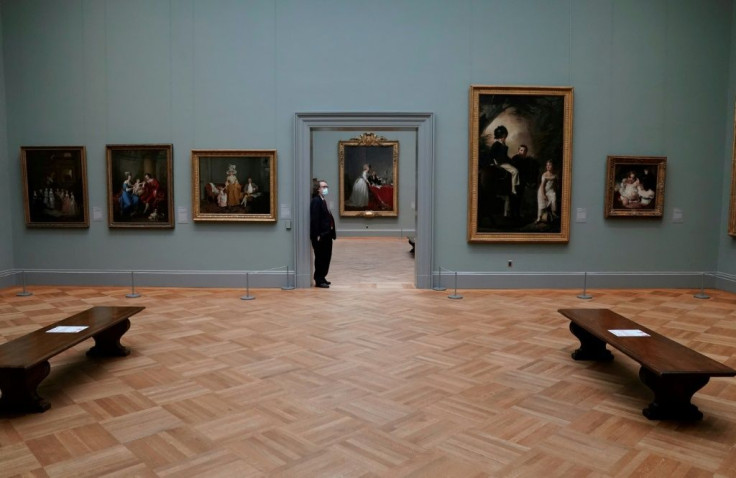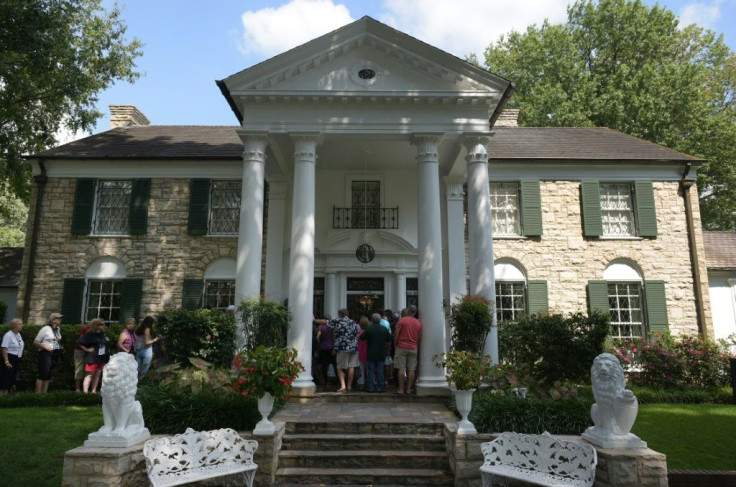Museums Bet On Paid Virtual Tours During Pandemic But Will They Catch On?
Take a guided tour of Elvis Presley's home from your sofa or marvel at old masters' paintings in The Met without visiting New York: museums, forced to adapt by the pandemic, are now offering paid virtual tours -- but how big a source of income will they become?
Interactive walks, video games and podcasts are some of the numerous free innovations museums have launched to try to mitigate the effects of closures and a slump in visitors caused by coronavirus. But more and more institutions are now pushing paid options also.
Presley's home Graceland in Memphis, Tennessee, has been offering two-hour-long tours by guide Angie Marchese for $100 a head since January.
Some 300 people, the maximum capacity, signed up for each of the first two virtual tours in which they hear anecdotes about Presley, see objects he owned and can ask questions about his life.
In December, Barbara Brown-Abolafia took her students from Bergen Community College in New Jersey on a virtual trip to the Metropolitan Museum of Art to see the exhibition "A New Look at Old Masters."
Unlike at Graceland, an expert guide did not roam the room, with the Met saying it was constrained by health measures linked to Covid-19.

"It was a slide-show format, so it felt more like a class," recalled Brown-Abolafia.
But the quality of the presentation and its interactive nature with a live chat for questions made up for it, according to the English teacher, who grew up in New York and has visited the museum in person several times.
"Does it compare to being inside the Met? Of course not. But it was mentally stimulating," she said.
Before the virtual visit, Brown-Abolafia had explained the profile of her pupils to the expert.
"She accommodated us by not going over their heads, but not making it too simplified.
"In fact, it was so interesting that it went over an hour by about 20 minutes," said Brown-Abolafia.
The Met began the tours in June. Between July and December the famous museum held 116 virtual tours, for over 2,800 adult visitors in total.

They cost $300 per group of up to 40 adults, or $200 for a group of students.
The Met also hosted nearly 4,000 schoolchildren, including foreign students, via computer screens between July and December, with demand growing, according to the institution.
The Met said it was also committed to continuing the other free programs it runs.
Other New York museums, including the Guggenheim, the Frick Collection and the 9/11 Memorial are all offering paid virtual tours.
The Louvre in Paris, the most visited museum in the world, has not offered the same but is considering it, a spokesperson said.
Video tours on services like Zoom and Teams are becoming commonplace during the pandemic, according to Michael Burns of Quatrefoil Associates, a firm that specializes in laying out exhibitions.
"The idea that they can somehow have an experience that is more unique to them because it's private, I think there'll be people willing to pay for that," he told AFP.
He says that while nothing beats being physically in the same room as the artwork, the pandemic has "opened up a new niche" of private virtual tours.
In an increasingly globalized world, where demand for culture continues to grow, the potential for paying to experience famous works remotely is substantial, experts say.
"Onsite tours will always be the core component of our offerings," said Debbie Miller, chief marketing officer for Elvis Presley Enterprises, which manages Graceland.
Yet "we recognize there are many people who are unable to travel to Memphis so the ability to bring Graceland to them virtually, while earning some additional revenue, is a win-win," she added.
© Copyright AFP 2024. All rights reserved.




















